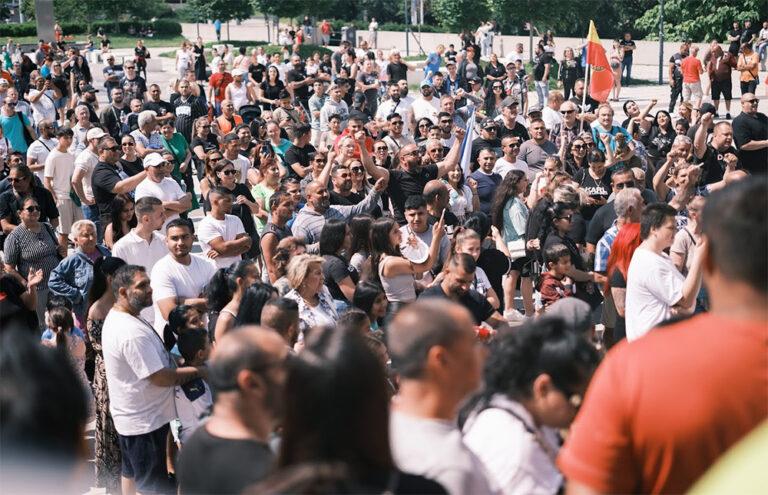Jan Houška: Collective guilt? Who do you think the Roma in the Czech Republic learned that from?

It is unfair to expect Romani people to overcome the repercussions of the more than 30 years during which collective guilt has been applied to them here in the Czech Republic. What I mean by that is the perception of Romani people as a homogenous group and the application to them of the prejudices and stereotypes which most of Czech society has created for itself about them. Such biases are manifest in all areas of life here.
Take, for example, the complex approach to rental housing here. A Romani man as a tenant? That is going to be a problem. Even today, in 2023, you can read classified ads for rental housing that explicitly tell Romani people to not even bother calling. The police? Who among the Roma has never experienced disrespectful behavior or bullying from police officers? Latent racism at the local authority? We perceive that as standard. Politics? Let’s count the number of Romani members of the lower house since the Roma Civic Initiative times [the 1990s]. The fingers of one hand is all you need. All of this is a consequence of the collective guilt that is applied to Romani people in a standard way, irrespective of who they are.
...extremist tendencies are beginning to appear among part of the Romani community, based on the feeling that whatever happens in the Czech Republic, Romani people in particular will suffer the most as a result.
Some are amazed that Romani people here are applying collective guilt against others now. It’s true this is frequently happening. However, we have to ask where Romani people learned this. For 30 years they have been the target for collective guilt and by now they often consider it a standard thing.
Let’s say a Romani man in Aš [northwest Bohemia] does something wrong. That means a Romani man in Ostrava [eastern Moravia] will be targeted for blame as well. That’s just how it is. This tendency was clear, for example, during the influx from Ukraine, when the Czech Romani community was among the first to aid Ukrainians at the border. Despite that fact, Romani Ukrainians were frequently abandoned by non-Roma at the train stations and refused access to the common transports of Ukrainians into Bohemia.
All of this is creating an image of the Czech Republic as a country that has different laws for Romani people than for non-Romani ones. Romani people believe that to be the case, which is understandable. European and global institutions criticize this approach to minorities, then Czech lawmakers or the ombudsman belittle the criticism. Similar things have happened over the years irrespective of which parties are in power.
This approach represents a potential time bomb that has already been ignored for too long. As a result, extremist tendencies are beginning to appear among part of the Romani community, based on the feeling that whatever happens in the Czech Republic, Roma in particular will suffer the most. This is alarming for many Roma who are concerned for their children. They have the feeling that the war is heading in their direction and that they are the ones being fought. This is a genuinely serious matter!
In this context it is obvious that the Interior Minister is not fully aware of who is being received into this country along with the decent Ukrainians, one of the things that has repeatedly been said at the recent demonstrations by Romani people. After all, as a foreigner you can’t get into the USA without first being vetted, even as a refugee from a war zone. The state of Israel does similar vetting as well.
The principle is that those countries don’t want a potential murderer to enter the country together with refugees, as happened in the case of the actor in the tragic conflict in Brno. [Translator’s Note: Authorities have not publicized either the suspect’s nationality or residency status.] Do we know if the suspect has ever been sentenced for a crime before? Do we know if he has ever committed violence before? Racism? Do we know if he was one of those who committed the pogrom against Romani people in Mukacheve in Ukraine? No, we know nothing about him.
This is not the only failure of [Czech Interior Minister] Rakušan’s ministry. I believe he should resign.